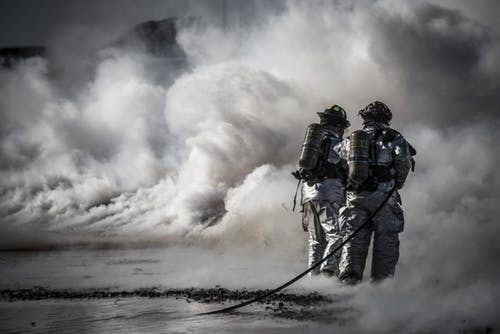Uh-oh, You’ve found water in your basement – now what? Don’t stress; we’ve got your back! This comprehensive guide will help you identify the causes of basement water damage, discuss how to address and repair the damage and provide long-lasting prevention strategies to keep your basement dry and safe.
Identifying the Signs of Basement Water Damage
Do you know the signs of basement water damage? Catching the problem early can save you a lot of headaches and money. Let’s dive into the common indicators that something isn’t quite right:
Cracks in Walls and Floors
Cracks are not just unsightly; they indicate water seeping into your basement. Keep an eye out for any cracks in the walls and floors, as they might indicate an issue with your foundation or water infiltration.
Discoloration and Dampness
If you notice any yellow or brown-tinted spots on walls, ceilings, or floors, there’s a good chance you’re dealing with water damage. Damp spots or standing water should also raise a red flag.
Foul Smells and Mold Growth
A musty, unpleasant odor in your basement is often a sign of mold or mildew growth. Mold grows in damp environments, so addressing any water infiltration that may be fueling its growth is essential.
Common Causes of Basement Water Damage
Understanding the causes of basement water damage is half the battle. Let’s break down the most common culprits behind that unwanted basement moisture:
Foundation Cracks
Cracks in your foundation can allow water to seep into your basement. This may result from hydrostatic pressure, soil movement, or the natural aging process.
Window Leaks
Improperly sealed windows or damaged window wells can cause water to leak into your basement. Check your windows during heavy rainfall and promptly address any leaks.
Leaky Pipes
A hidden burst pipe or leaky plumbing can lead to significant water damage in your basement. Regular inspections of your plumbing system can help prevent such issues.
Appliance Leaks
Your basement appliances, like your washing machine or water heater, can cause water damage if their hoses or connections begin to leak. Regularly checking these appliances and addressing any issues can save you from a soggy mess.
Addressing and Repairing Basement Water Damage
- Water Extraction and Drying
If you face standing water in your basement, the first step is to remove the excess water through a process known as water extraction. This can be done using a submersible pump and a wet vacuum. After removing the standing water, it’s crucial to dry the area thoroughly to prevent mold and mildew growth.
This process may require a professional for more extensive cases, especially when dealing with biohazard cleanup services in Dallas. Professionals can ensure that your space is properly sanitized and cleaned, especially in cases involving sewage or other hazardous materials.
- Repairing the Damage
Now that your basement is dry, it’s time to address any damaged areas. Patch foundation cracks, repair leaky pipes, reseal windows, and address any other sources of water infiltration.
- Professional Water Damage Restoration
For more extensive damage or persistent issues, it may be necessary to call in professional water damage restoration experts. These water damage restoration and repair professionals can help restore your basement to its original state if needed.
Prevention Strategies for Avoiding Basement Water Damage
Take measures to prevent basement water damage with these helpful tips:
- Exterior Drainage and Sump Pump Maintenance
A critical step in avoiding water damage is ensuring proper exterior drainage and maintaining your sump pump, which collects excess water and pumps it out of your basement.
- Inspections and Maintenance
Regularly inspecting your basement for any signs of water damage, maintaining your plumbing system, and keeping your windows and appliances in good condition can help prevent basement water damage.
Planning for the Future
Future-proof your basement by improving drainage, installing a sump pump, and waterproofing the space. In addition, work with a property restoration provider to make sure all necessary repairs or improvements are completed to protect your home from future water damage.
The Bottom Line
By identifying the signs and causes of basement water damage, you can take the necessary steps to repair and prevent further damage. Regular inspections and maintenance are essential for a dry and safe basement. Feel free to call in professionals if needed, and ensure you have a plan in place for the future.



